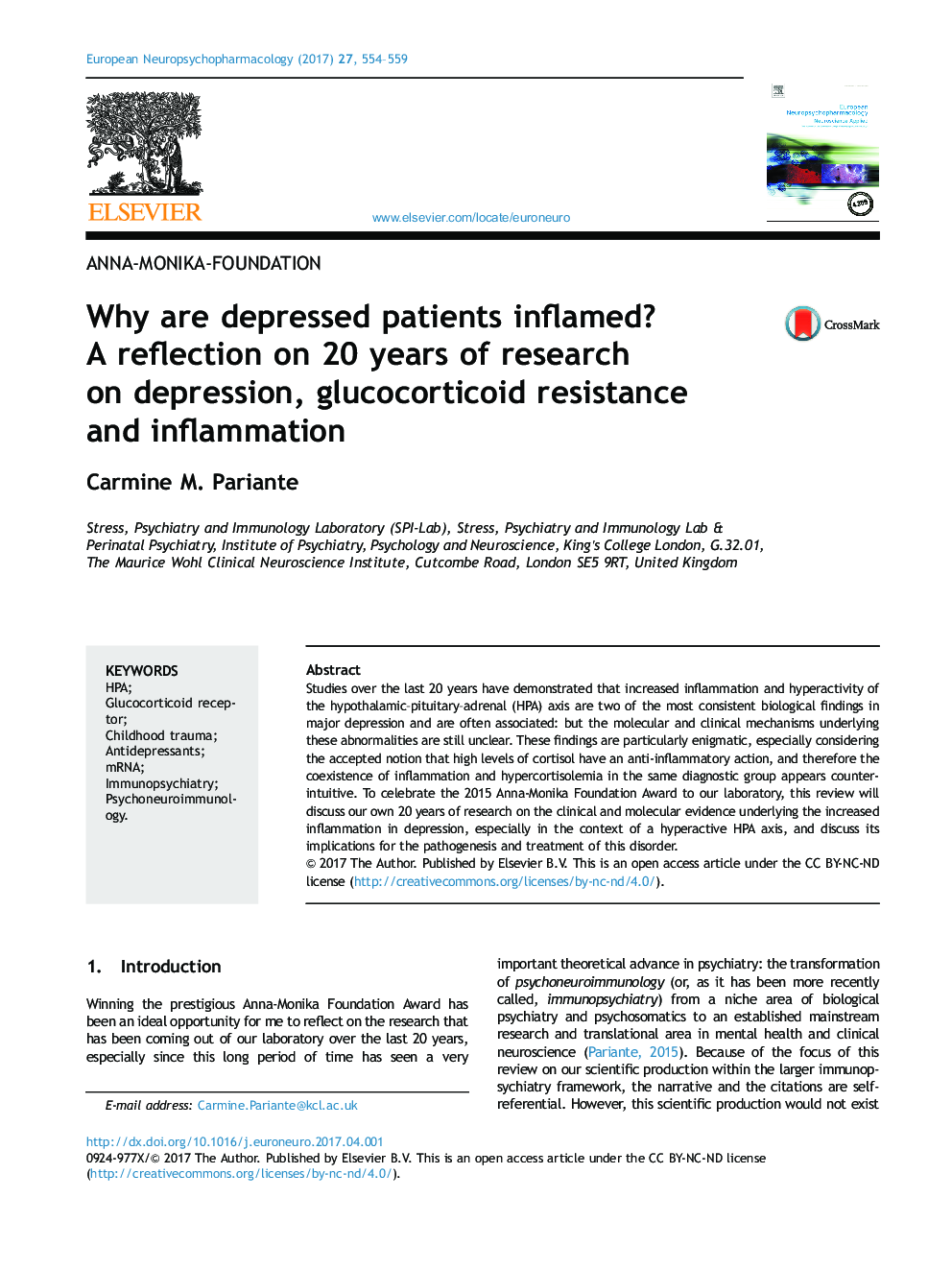| Article ID | Journal | Published Year | Pages | File Type |
|---|---|---|---|---|
| 4930319 | European Neuropsychopharmacology | 2017 | 6 Pages |
Studies over the last 20 years have demonstrated that increased inflammation and hyperactivity of the hypothalamic-pituitary-adrenal (HPA) axis are two of the most consistent biological findings in major depression and are often associated: but the molecular and clinical mechanisms underlying these abnormalities are still unclear. These findings are particularly enigmatic, especially considering the accepted notion that high levels of cortisol have an anti-inflammatory action, and therefore the coexistence of inflammation and hypercortisolemia in the same diagnostic group appears counter-intuitive. To celebrate the 2015 Anna-Monika Foundation Award to our laboratory, this review will discuss our own 20 years of research on the clinical and molecular evidence underlying the increased inflammation in depression, especially in the context of a hyperactive HPA axis, and discuss its implications for the pathogenesis and treatment of this disorder.
